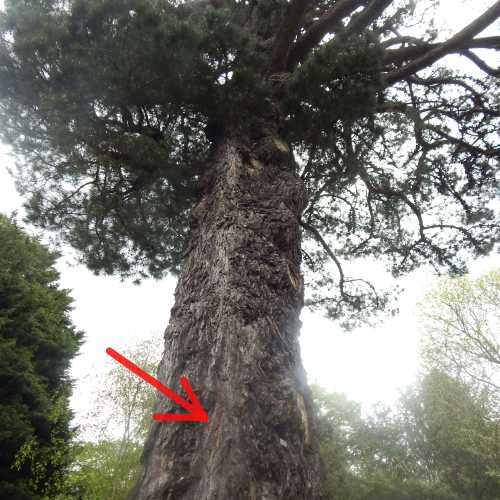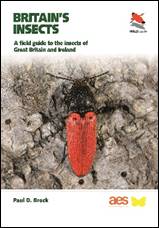Would Honey Bees Survive In Britain Without Beekeepers?
Query:
Hi, I'm not convinced honey bees would survive in Britain if it were not for beekeepers, and this begs the question of whether they should be here at all.
John, UK.
I have seen hints of this query, in various forms, cropping up elsewhere. So, is it true that honey bees would not survive in Britain without beekeepers?
The answer to this questions is:
Yes honey bees would survive in Britain without beekeepers, and they do already. There are plenty of wild colonies in Britain, but as with other bee species, the key challenge is availability of suitable nest sites and habitat.
Yes, Honey Bees Can And Do Survive In Wild Colonies In Britain
I am aware of the completely false assertion that honey bees cannot survive in Britain without the input of the beekeeper, in particular during the winter months.
 Above: Location of a wild honey bee nest I have been monitoring since February 2019. It is still active as of February 2022.
Above: Location of a wild honey bee nest I have been monitoring since February 2019. It is still active as of February 2022.
The above photograph shows the location of a wild honey bee nest I have been monitoring in Britain since February 2019, observing the bees foraging on clear cold days in temperatures as low as 41°F (5°C). You can read more about this on my page "Do Honey Bees Forage In Cool Temperatures?". You'll note that my observations tie in nicely with those of scientific study.
In order to survive, a wild nest has to be appropriately insulated. This means of course, that nest sites such as tree hollows need to be available, and the number of suitable sites could pose a problem for colony survival in the wild.
However, honey bees are no different from other bee species in facing human-caused challenges to the availability of suitable nest habitat.
Competition between bumble bee queens for limited nest sites can cause a fight to the death, for example.
Not all wild colonies will survive
It is true that not all honey bee wild colonies will be successful, meaning survival to produce swarms and new colonies.
However, in this regard they are no different from other species such as bumble bees.
For example, a study of 908 bumble bee nests in Britain between 2008 and 20131, found that colony survival, (measured by success in producing gynes - the newly emerging reproductive females - i.e. queens) ranged from as little as 41% for the native Bombus hortorum, to 96% for the recent newcomer, the tree bumble bee, Bombus hypnorum.
Reasons for colony failure in order of most commonly occurring, were:
- excavation of the burrow,
- human disturbance of the nest,
- flooding and
- wax moth.
Is it true that honey bees are not native to Britain?
Elsewhere I have covered the question of whether honey bees are native to Britain, so I will not expand on it here, suffice to say that it is highly likely that the black honey bee, Apis mellifera mellifera, is native to Britain.
The same page lists bumble and solitary species in Britain that are considered native, but are very recent arrivals. The people who point fingers at the honey bee rarely ever, if at all, mention these species.
References
1. Goulson, D., O'Connor, S. and Park, K.J. (2018), Causes of colony mortality in bumblebees. Anim Conserv, 21: 45-53. https://doi.org/10.1111/acv.12363
